Big issue with Australia’s ‘dangerous’ debate on foreign interference ahead of federal election
Experts are warning a “dangerous” debate on China is taking place in Australia ahead of the upcoming federal election.
The issue of foreign interference – in particular from China – has exploded in the past two weeks with experts now warning Australia is in a “dangerous” position.
Concerns have been raised about accusations from the Morrison government that China is supporting Labor leader Anthony Albanese to win the next federal election.
Prime Minister Scott Morrison again repeated claims in parliament on Thursday that Mr Albanese was the Chinese government’s “pick” at this election.
It prompted Mr Albanese to attempt to table a letter he says was sent to him by Mr Morrison in October that thanked the Opposition leader for his “bipartisan approach” and support for the government’s decision to form the AUKUS alliance with the United States and United Kingdom, and to buy nuclear powered submarines.
“It was bipartisan until we got to the eve of an election,” Mr Albanese said.
Mr Morrison later told parliament his government was “setting a high bar” when it came to national security, which included funding for defence forces and intelligence agencies, something that Labor has previously cut.
The PM’s comments come despite concerns raised by the head of Australia’s intelligence agency ASIO, which described the politicisation of national security as “not helpful”, and suggestions from a former director that it is not in the country’s best interests.
“It is a long, long time – many decades – since we’ve seen a government do this. And it’s dangerous, and it’s best avoided,” former ASIO head Dennis Richardson told ABC Radio today.
Why are we suddenly talking about China again?
The debate was kicked off last week when Australian Security Intelligence Organisation (ASIO) director general Mike Burgess revealed the agency had recently disrupted a “foreign interference plot” and had identified a wealthy man dubbed “the puppeteer”, who “did the bidding of offshore masters”.
Mr Burgess said the plot was uncovered in the lead-up to an election, although he did not say in which jurisdiction. The Sydney Morning Herald has reported the plot involved Chinese spies trying to bankroll NSW Labor candidates ahead of the upcoming federal election.
Mr Burgess said the puppeteer hired an employee to use as a “cut-out”, to identify candidates likely to run in the election who either supported the interests of the foreign government or who were assessed as vulnerable to inducements and cultivation.
“The employee used existing relationships with politicians, staffers and journalists to select potential targets, without revealing the secret intent, the foreign connection or the puppeteer’s involvement,” Mr Burgess said during his annual threat assessment speech on February 9.
They plotted ways of helping the candidates including through providing support and placing favourable stories on foreign language sites. They also investigated hiring consultants, advertising agencies and PR specialists.
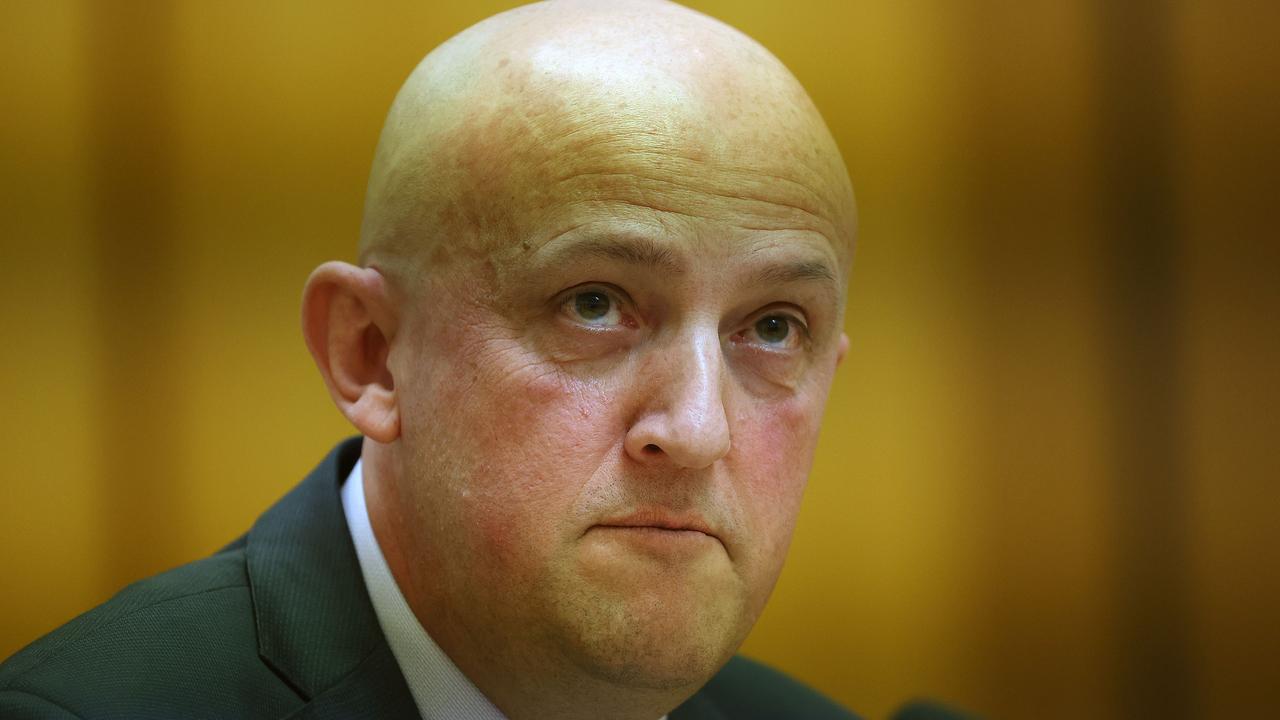
“The aim was not just to get the candidates into positions of power, but also to generate a sense of appreciation, obligation and indebtedness that could subsequently be exploited,” Mr Burgess said.
“The political candidates had no knowledge of the plot. Even if the plan had proceeded, they would not have known who was pulling the strings.”
Mr Burgess did not reveal the identity of the puppeteer saying “we are seeing attempts at foreign interference at all levels of government, in all states and territories”.
“When we interviewed members of the network, some of the contacts suspected they’d engaged with spies, but most had no idea – and were shocked when we knocked on their doors.”
Labor Senator Kimberley Kitching on Monday used parliamentary privilege to ask whether the puppeteer was Chinese billionaire Dr Chau Chak Wing.
Dr Wing has slammed the “baseless” allegations and challenged the Senator to repeat the claims in a public forum, where she is not protected by parliamentary privilege.
“In 2017, the ABC and Nine journalist Nick McKenzie made a similar allegation in a Four Corners report. The Federal Court subsequently awarded me very substantial damages which I donated to charity,” he said in a statement.
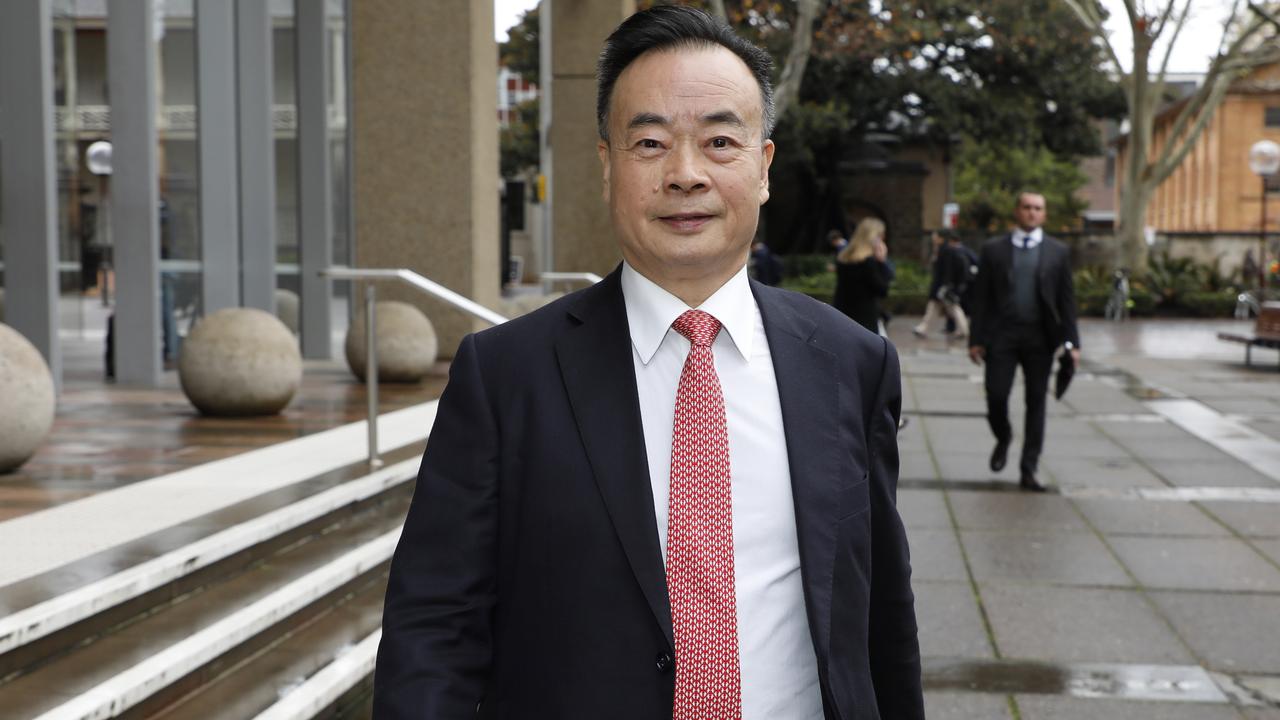
Government targets Labor over China
The day after Mr Burgess’s speech, Prime Minister Scott Morrison and Defence Minister Peter Dutton launched an attack against Labor leader Anthony Albanese.
Mr Dutton told parliament: “We now see evidence that the Chinese Communist Party – the Chinese government – has also made a decision about who they’re going to back in the next federal election. That’s open. That is obvious. And they have picked this bloke, the Leader of the Opposition, as their candidate,” said Mr Dutton last Thursday.
Mr Albanese lashed the PM as “desperate” for trying to weaponise highly classified ASIO reports to suggest China is trying to infiltrate the ALP and said ASIO had no issues with any of Labor’s candidates.
Labor’s home affairs spokeswoman Kristina Keneally told ABC Radio National’s Breakfast on Thursday that Labor had consistently said it would not take a backward step when it came to standing up for Australia’s national interest.
“We’ve consistently called for the withdrawal of the unfair trade sanctions and called out the economic coercion we are seeing from China,” she said.
“It was Labor who banned Huawei from the NBN. It was Labor who put a stop to this government’s plan to set up an extradition treaty with China, and it was under the Morrison government’s watch that the port of Darwin was leased to China.”
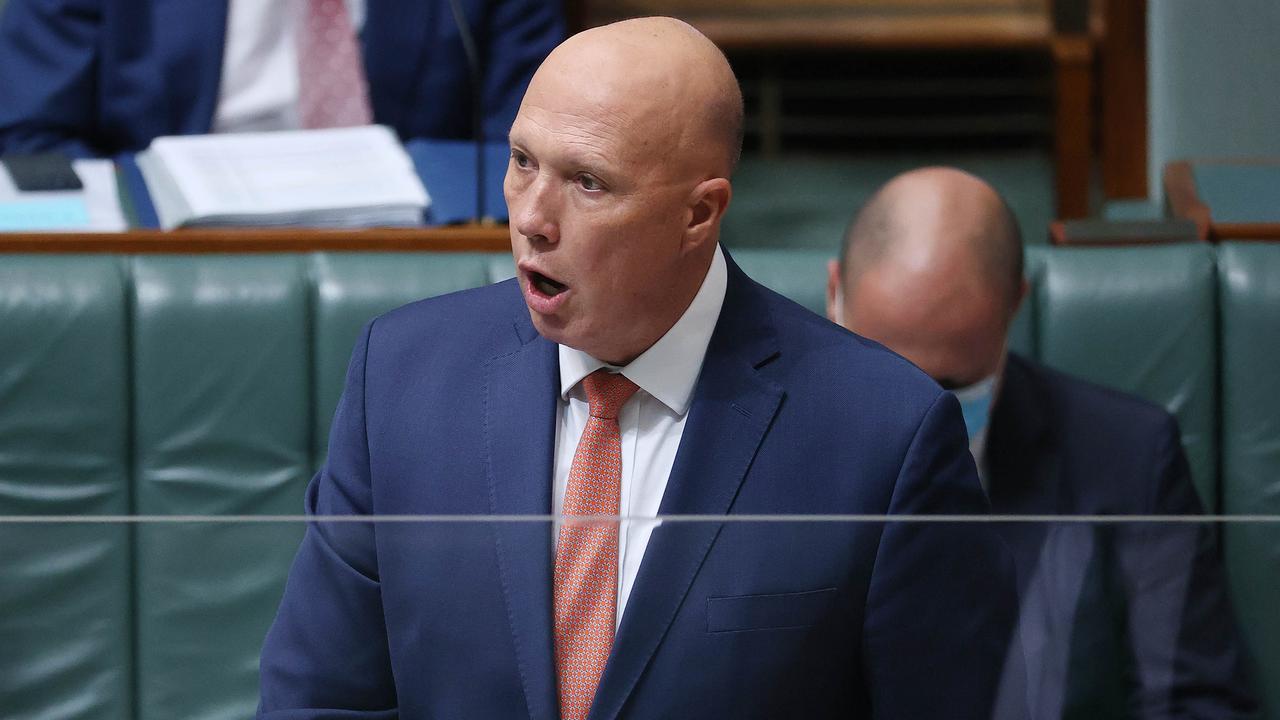
Her comments came after the PM was forced on Wednesday to withdraw a reference he made in parliament about Labor deputy leader Richard Marles being a “Manchurian candidate”, which suggests he is a disloyal puppet acting on behalf of an enemy power.
That night ASIO director general Mike Burgess made a rare appearance on 7.30 to point out that foreign interference targeted all members of parliament.
“It doesn’t go after one particular party or the other,” he said.
Mr Burgess, who stressed that ASIO was apolitical, said it was “not helpful for us” when politicians politicise national security.
Spy boss @MikePBurgess appearing on 7:30 is not normal or usual. His direct intervention is diplomatic but blunt: he’s saying foreign influence is issue for both major parties. It’s not just Labor. It’s not helpful he’s saying to politicise this stuff
— Samantha Maiden (@samanthamaiden) February 16, 2022
A pointedly timed and rare interview. ASIO boss @MikePBurgess on @abc730 telling @leighsales that foreign influence is an issue across parties, not just Labor, and that it is not helpful to politicise the issue
— Laura Tingle (@latingle) February 16, 2022
A former senior diplomat and head of the Office of National Assessments, Allan Gyngell, has told The Sydney Morning Herald, there were no substantive policy differences between Labor and the Coalition on China.
“An effective wedge has to be made out of something more solid than wishful thinking,” Mr Gyngell said.
“The language will differ person to person, but on the key policy issues, which is what matters – on the Quad, foreign interference, 5G – I think it’s clear.”
‘This is dangerous’
Former ASIO director general Dennis Richardson has gone even further, telling ABC Radio National’s Patricia Karvelas on Thursday morning that to create an artificial division, which does not actually exist in practice “only serves the interests of one country – and that’s China”.
“It is in our interest, for both the government and the Opposition, to stand together on an issue like that (national security) and up til now they have been, that’s why I find it puzzling that a government would appear to go out of its way to create the perception of a difference where none in practice exists.”
Mr Richardson noted some had publicly stated the government should be fighting the upcoming election on its strengths – national security and the economy.
“The government is quite happy for you and I to be talking about this matter right now,” he said.
“It suits their political purposes and I don’t think that’s particularly impressive when you’re playing around with such critical issues as our relationship with China.”
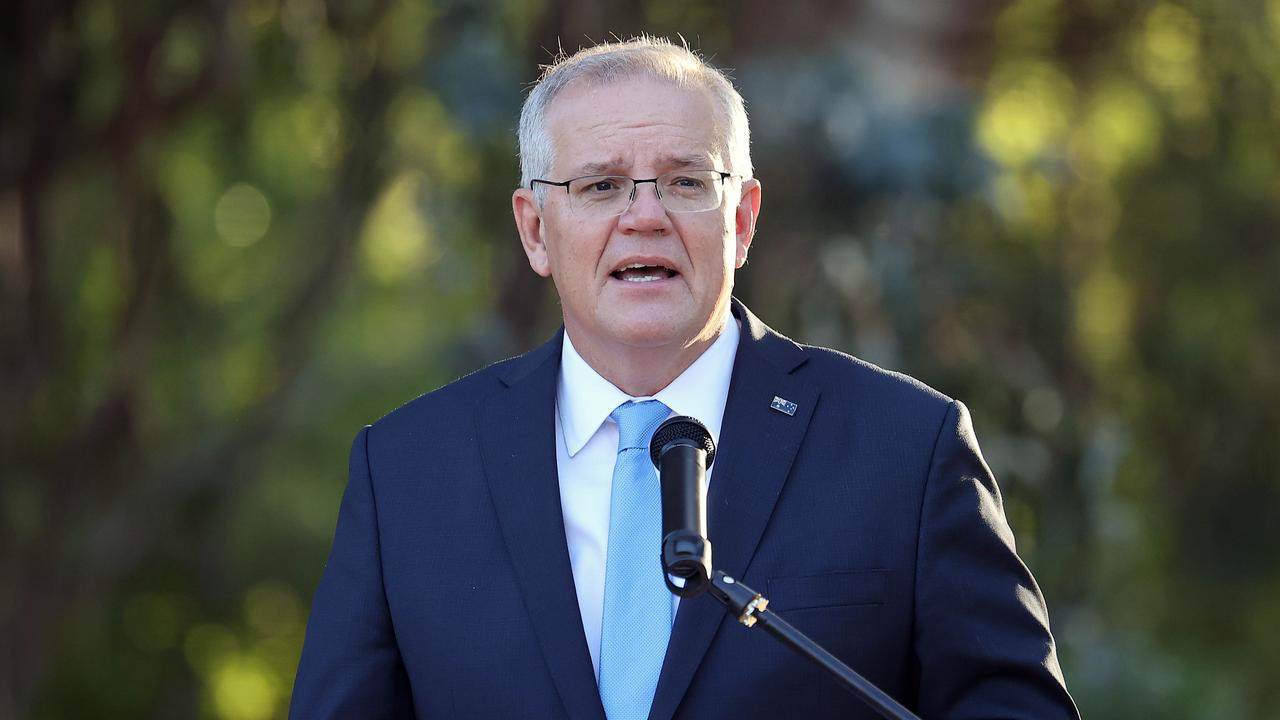
Mr Richardson said politicising issues of national security potentially sent a message to the outside world that there were significant differences when it comes to China, where none actually existed.
He said China could also seek to take advantage of this seeming division.
“Why would any sensible government seek to create circumstances which could work against our own national interests for party political purposes?” Mr Richardson asked.
“It is a long, long time – many decades – since we’ve seen a government do this. And it’s dangerous, and it’s best avoided.”
In his speech last week, Mr Burgess said Australia needed to be particularly on guard against foreign political interference this year, which is a federal election year.
“Attempts at political interference are not confined to one side of politics, and you’d be surprised by the range of countries involved,” Mr Burgess said.
“It is critical we do not let fear of foreign interference undermine stakeholder engagement or stoke community division. Were this to happen, it would perversely have the same corrosive impact on our democracy as foreign interference itself.”
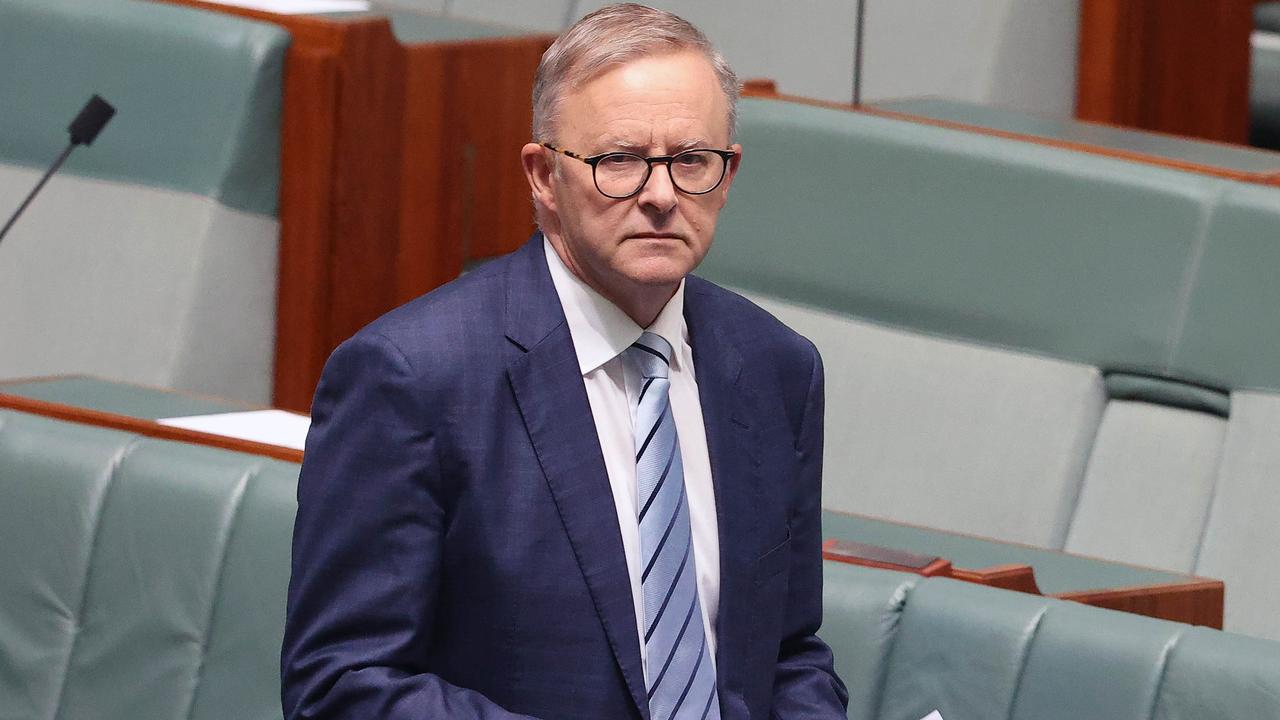
What is foreign interference?
Mr Burgess explained last week that publicly praising a foreign regime – even an odious one – was not interference. Either was lobbying of behalf of another government if it was done transparently.
However, if the person praising another country was doing this because they were being instructed to by that government, it could be interference if it was detrimental to Australia’s interests or done to affect its political processes.
Mr Burgess gave two examples of foreign interference.
The first one related to the harassment of Australia’s diaspora communities.
“Foreign governments will often monitor and intimidate members of diaspora communities who are critics of the foreign government or express views at odds with the regime’s policies.
“It’s unacceptable that people who live in your street – and mine – might be subjected to the strong arm – and long arm – of a foreign state.”
He said there was also a difference between people staging a protest in Australia due to “nationalist zeal” or because they were being secretly directed to do this by a foreign government.
Originally published as Big issue with Australia’s ‘dangerous’ debate on foreign interference ahead of federal election





